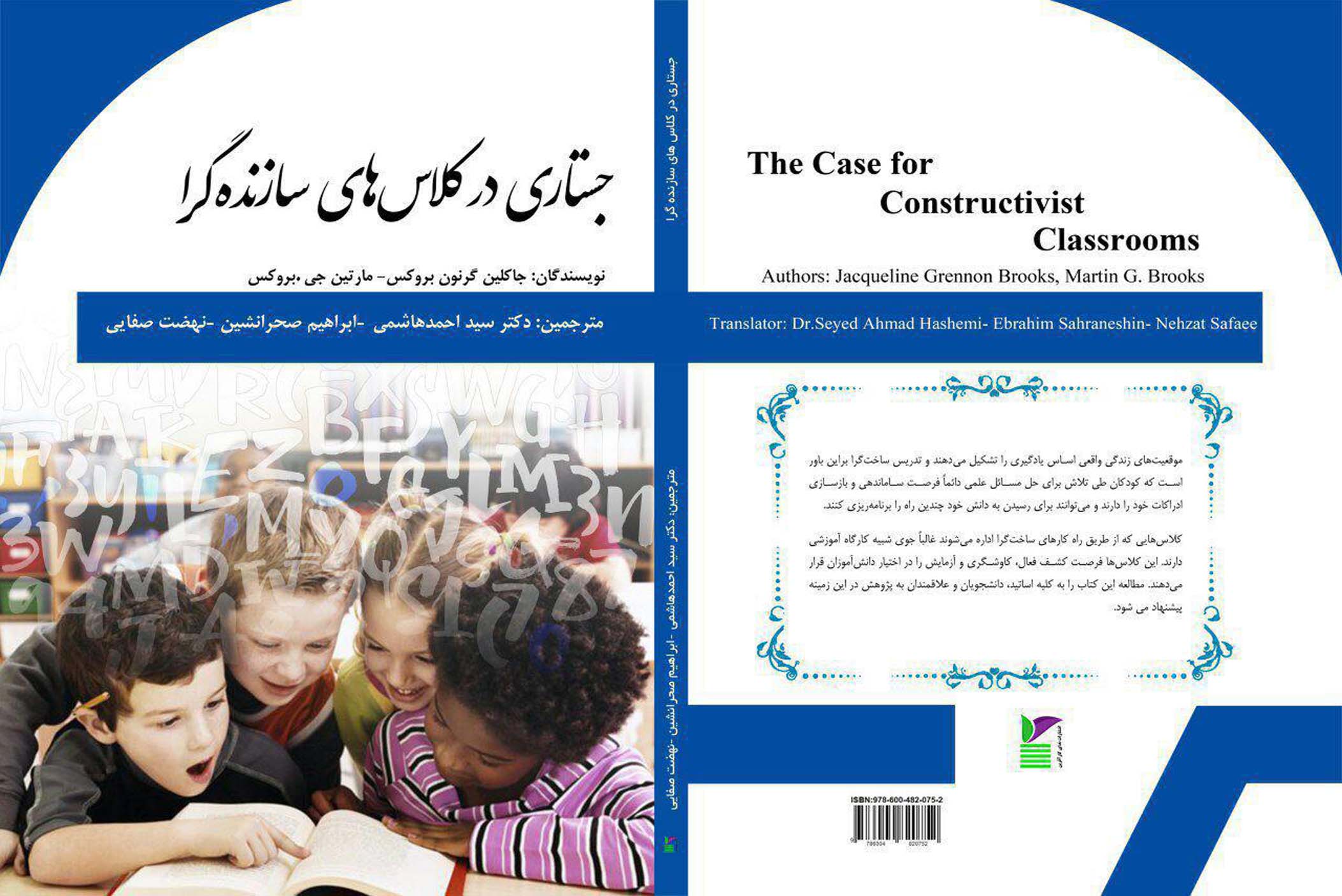Determining the Mediating Role of Psychological WellBeing in the Relationship Between Spiritual Intelligence and Life Satisfaction of Nurses Working in Lamerd City
Seyed Ahmad Hashemi1*, Abolfazl Abbasi1
1. Department of Educational Sciences, Faculty of Humanities, Lamerd Branch, Islamic Azad University, Lamerd, Iran
A B S T R A C TBackground: Considering the satisfaction of the life of the healthcare workers, it is imperative that they are exposed to mental health problems. In this regard, improving spiritual intelligence and paying attention to the psychological well-being of employees can help in the satisfaction with the lives. Accordingly, the present study aimed to determine the mediating role of psychological well-being in the relationship between spiritual intelligence and life satisfaction of nurses working in Lamerd city.
Methods: In the present study descriptive-correlation method was applied. The statistical population of the study included 110 nurses working in the city of Lamerd. Due to the limited population nurses were included in the research using the census method of all members of the community. To collect data, three standard questionnaires of spiritual intelligence, Badie et al., Carole Reef’s Welfare Scale and Life satisfaction scale of Diner et al. were used. The reliability of the tool was calculated to be 0.87,0.83 and 0.81, using Cronbach’s alpha, respectively. The data analysis process was performed using statistical correlation, regression, and structural equation modeling in Lisrel and SPSS V. 19 software.
Results: According to the results, there was a positive and significant relationship between the spiritual intelligence (r = 0.41, P < 0.01) and the life satisfaction of nurses and between psychological well-being and life satisfaction of nurses (r = 0.46, P = 0.01). There was a positive and significant relationship between spiritual intelligence (r = 0.38, P < 0.01) with psychological well-being of nurses and healthcare providers. Also, the path coefficients of spiritual intelligence dimensions were compared from stage one to stage three. By reducing the coefficients of the direct path, the general thinking and belief in life satisfaction (from 0.34 to 0.28), the ability to cope and interaction with problems on life satisfaction (from 0.38 to 0.32), self-awareness and love (from 0.33 to 30), moral satisfaction on satisfaction from life (from 0.27 to 0.23), the psychological well-being variable was mediated predictor of the relationship between the dimensions of spiritual intelligence and life satisfaction.
Conclusion: The results demonstrated that there is a positive and significant relationship between spiritual intelligence and psychological well-being with life satisfaction of nurses and healthcare providers. In this regard, psychological well-being plays a mediating role between spiritual intelligence and life satisfaction.
Keywords: Life satisfaction, Psychological wellbeing, Healthcare provider, Spiritual intelligence
DownloadArticle


 موضوع: مقالات چاپ شده در مجلات خارجي ISI
موضوع: مقالات چاپ شده در مجلات خارجي ISI
 نويسنده: administrator
نويسنده: administrator
 تاريخ: 10 ارديبهشت 1397
تاريخ: 10 ارديبهشت 1397
 بازديدها: 523
بازديدها: 523
 موضوع: مقالات چاپ شده در مجلات خارجي ISI
موضوع: مقالات چاپ شده در مجلات خارجي ISI
 نويسنده: administrator
نويسنده: administrator
 تاريخ: 10 ارديبهشت 1397
تاريخ: 10 ارديبهشت 1397
 بازديدها: 515
بازديدها: 515
 موضوع: مقالات چاپ شده در مجلات خارجي ISI
موضوع: مقالات چاپ شده در مجلات خارجي ISI
 نويسنده: administrator
نويسنده: administrator
 تاريخ: 10 ارديبهشت 1397
تاريخ: 10 ارديبهشت 1397
 بازديدها: 526
بازديدها: 526
 موضوع: مقالات چاپ شده در مجلات خارجي ISI
موضوع: مقالات چاپ شده در مجلات خارجي ISI
 نويسنده: administrator
نويسنده: administrator
 تاريخ: 10 ارديبهشت 1397
تاريخ: 10 ارديبهشت 1397
 بازديدها: 500
بازديدها: 500

 كلام اول
كلام اول  زندگینامه
زندگینامه  رزومه
رزومه  تحصیلات تکمیلی
تحصیلات تکمیلی  سایت های معتبر تربیتی
سایت های معتبر تربیتی  مقالات چاپ شده در مجلات داخلی ISC
مقالات چاپ شده در مجلات داخلی ISC  كتابهاي تالیف و ترجمه شده
كتابهاي تالیف و ترجمه شده  مقالات كنفرانس هاي داخلي
مقالات كنفرانس هاي داخلي  موضوعات تحقیقی پیشنهادی
موضوعات تحقیقی پیشنهادی  مقالات كنفرانس هاي خارجي
مقالات كنفرانس هاي خارجي  مقالات چاپ شده در مجلات خارجي غیر ISI
مقالات چاپ شده در مجلات خارجي غیر ISI  مقالات چاپ شده در مجلات خارجي ISI
مقالات چاپ شده در مجلات خارجي ISI  مقالات چاپ شده در مجلات خارجي ISC
مقالات چاپ شده در مجلات خارجي ISC  طرح هاي پژوهشي انجام شده
طرح هاي پژوهشي انجام شده  منابع آزمون کارشناسی ارشد علوم تربیتی
منابع آزمون کارشناسی ارشد علوم تربیتی  منابع آزمون دکتری برنامه ريزي درسي
منابع آزمون دکتری برنامه ريزي درسي